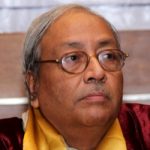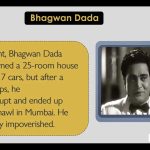Besides health and mental agility, the third essential parameter for leading a happy and sustainable life in old age is financial prudence.
Besides health and mental agility, the third essential parameter for leading a happy and sustainable life in old age is financial prudence. While proper “financial planning” for old age must start much earlier, may be from a young phase, that alone may not always be possible or one may still end up at the time of retirement with a corpus that may not be too large. In the current scenario of increasing life expectancy, one must plan for at least 20 plus years after retirement (at 60) for both themselves and their spouse. This is a substantial time period in the uncertain and turbulent period we live in. It is difficult to plan scientifically for such a long period when one does not have an “active source of income.” The concept of financial prudence, therefore, becomes crucial.
Meaning of financial prudence:
The term “prudence” broadly means following the path of wisdom. In the context of “finance for life”, it implies that one needs to live within one’s means. Whatever may be the past status, an elderly person has to manage available financial resources in such a way that he/she does not run the risk of getting “out of pocket”. As life progresses, the chances of getting external help (other than family support) become dim, and hence the elderly person has to be extra careful to ensure that he/she remains surplus and thereby financially independent till the last moment. In the absence of a pension (true for a large number of people) and a proper social security system, this becomes all the more important in a country like India.
Some suggested tips for financial prudence:
Following a minimalistic way of life: Modesty and simplicity are the two essential pillars of the minimalist approach. In terms of material possessions, the elderly must believe that it is past time for them to believe in these two principles.The idea is to reduce the expenses on things “you do not need” and try to “save it” or “spend it for what you essentially do need”. This principle will allow many unnecessary things to be discarded and preventable expenditures saved. The extreme case of minimalism could be called miserliness. While we never prescribe any one to be known as “miser”, what we are saying is that the elderly should try to minimise the expenses and save whatever they can through avoidance of unnecessary things.
1. Managing financial corpus:
Since the primary source of income at old age is interest from savings, and choices are limited in terms of investment, the elderly must be prudent to maximise the return wherever they can. Investing the maximum amount in the senior savings scheme of the Post Office or a similar package of banks could be a good idea. Some highly rated companies do offer a decent amount in terms of return (on debenture). This can also be explored. It is possible to consider investing a portion of the corpus, say 10%, in mutual funds.While the elderly are, by and large, risk averse and it may not be prudent for them to enter into a new field at a late age, the elderly may look into the possibility of investing a small amount in an equity market under expert guidance. The principle of “risk diversion” should always be followed by keeping the funds in different institutions/banks in view of uncertainty and the availability of limited insurance. Each individual should devise a quarterly monitoring system to ensure that no leaks are present. For example, an idle amount lying in a savings account, etc. The other crucial issue is the prevention of “cyber fraud”.
2. Place of stay:
This is important for some of us, as we may not need a big and lavish place to stay in old age. Why not move to a 2-room flat if we live in a 3- or 4-room house? It will help us with cash inflows and also lower our running expenses. People always think about the next generation while taking such decisions; the ideal thing is to take the decision that is most appropriate for us and not for our children. They will build their own house(s) and will not rely on our property in any way.Other options could be to move to old age homes by selling or renting the existing home or taking a “reverse mortgage” on the residential home. The idea is that people must resort to “outside the box thinking”, keeping in mind what is in their own best interest.
3. Corpus for medical expenses:
This is the biggest problem at old age, particularly for those who do not have any medical insurance (company/own). All seniors who do not have any insurance cover must keep a significant amount, say, Rs 20 to 25 lacs, towards cover for medical expenses for life to take care of all contingencies. They should set up a “separate corpus” with this money and must not touch it for any other expenses. This is the only way one can be self-disciplined in terms of medical expenses.
4. Estate planning:
This is the final but most important component of financial prudence. One should make a proper “estate plan” and write a “will” so that there is no confusion on his/her demise and the properties are bequeathed to legal heirs properly as per the wish of the individual. One word of caution here: no property should be handed over to a legal heir before death. Several cases of elder abuse are on record to prove this point.
Concluding remarks:
Life is difficult, and finances are sometimes one of the biggest hurdles. The idea of the above discussions was to deliberate ways to manage our financial affairs wisely so that one fine morning we do not become “out of cash”. That does not mean we should not enjoy life and its beauty. We should continue to enjoy life as it is the biggest gift of Providence, with all of its problems. The better we manage our finances, the better and healthier our lives will be.
Author Bio

Dr A K Sen Gupta is the Co-Founder and Chief Trustee of My Retired Life Foundation (MRLF). This article has been published in Free Press Journal (FPJ) on 6th August 2022, where he is a regular contributor. Dr Sen Gupta was the Director of S.P. Jain Institute of Management & Research, Mumbai, and Director & Mentor at SIES College of Management Studies, Navi Mumbai. He was a World Bank Consultant and instrumental in setting up the National Banking College in Ghana, Africa, and a Professor at the National Institute of Bank Management, Pune.




